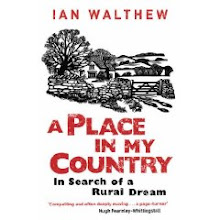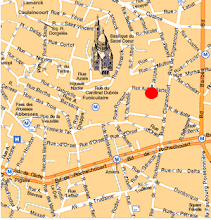Friday 25 July 2008
Farmers in Afghanistan
FROM THE NEW YORK TIMES MAGAZINE
Is Afghanistan a narco-state?
By Thomas Schweich
Published: July 24, 2008
[Thomas Schweich, who until June was one of the State Department's senior counter-narcotics officials, accused Karzai of protecting drug lords for political reasons. Schweich wrote in an article to be published Sunday in The New York Times magazine that "narco-corruption went to the top of the Afghan government."]
The UN reports shattered the myth that poppies are grown by destitute farmers who have no other source of income. They demonstrated that approximately 80 percent of the land under poppy cultivation in the south had been planted with it only in the last two years. It was not a matter of "tradition," and these farmers did not need an alternative livelihood. They had abandoned their previous livelihoods — mainly vegetables, cotton and wheat (which was in severely short supply) — to take advantage of the security vacuum to grow a more profitable crop: opium.Around the same time, the United States released photos of industrial-size poppy farms — many owned by pro-government opportunists, others owned by Taliban sympathizers. Most of these narco-farms were near major southern cities. Farmers were digging wells, surveying new land for poppy cultivation, diverting U.S.-built irrigation canals to poppy fields and starting expensive reclamation projects.Yet Afghan officials continued to say that poppy cultivation was the only choice for its poor farmers. My first indication of the insincerity of this position came at a lunch in Brussels in September 2006 attended by Habibullah Qaderi, who was then Afghanistan's minister for counternarcotics. He gave a speech in which he said that poor Afghan farmers have no choice but to grow poppies, and asked for more money. A top European diplomat challenged him, holding up a UN map showing the recent trend: poppy growth decreasing in the poorest areas and growing in the wealthier areas. The minister, taken aback, simply reiterated his earlier point that Afghanistan needed more money for its destitute farmers. After the lunch, however, Qaderi approached me and whispered: "I know what you say is right. Poverty is not the main reason people are growing poppy. But this is what the president of Afghanistan tells me to tell others."
At the same time, the 101st Airborne arrived in eastern Afghanistan [Spring 2007]. Its commanders promptly informed Ambassador Wood that they would only permit crop eradication if the State Department paid large cash stipends to the farmers for the value of their opium crop. Payment for eradication, however, is disastrous counternarcotics policy: If you pay cash for poppies, farmers keep the cash and grow poppies again next year for more cash. And farmers who grow less-lucrative crops start growing poppies so that they can get the money, too. Drug experts call this type of offer a "perverse incentive," and it has never worked anywhere in the world. It was not going to work in eastern Afghanistan, either. Farmers were lining up to have their crops eradicated and get the money.
That is where we are today. The solution remains a simple one: execute the policy developed in 2007. It requires the following steps:1. Inform President Karzai that he must stop protecting drug lords and narco-farmers or he will lose U.S. support. Karzai should issue a new decree of zero tolerance for poppy cultivation during the coming growing season. He should order farmers to plant wheat, and guarantee today's high wheat prices. Karzai must simultaneously authorize aggressive force-protected manual and aerial eradication of poppies in Helmand and Kandahar Provinces for those farmers who do not plant legal crops.2. Order the Pentagon to support this strategy. Position allied and Afghan troops in places that create security pockets so that Afghan counternarcotics police can arrest powerful drug lords. Enable force-protected eradication with the Afghan-set goal of eradicating 50,000 hectares as the benchmark.3. Increase the number of DEA agents in Kabul and assist the Afghan attorney general in prosecuting key traffickers and corrupt government officials from all ethnic groups, including southern Pashtuns.4. Get new development projects quickly to the provinces that become poppy-free or stay poppy free. The north should see significant rewards for its successful anticultivation efforts. Do not, however, provide cash to farmers for eradication.5. Ask the allies either to help in this effort or stand down and let us do the job.
There are other initiatives that could help as well: better engagement of Afghanistan's neighbors, more drug-treatment centers in Afghanistan, stopping the flow into Afghanistan of precursor chemicals needed to make heroin and increased demand-reduction programs. But if we — the Afghans and the U.S. — do just the five items listed above, we will bring the rule of law to a lawless country; and we will cut off a key source of financing to the Taliban.
http://www.iht.com/articles/2008/07/24/news/27afghant.php?page=1
www.aplaceintheauvergne.blogspot.com
Farm Blogs
Is Afghanistan a narco-state?
By Thomas Schweich
Published: July 24, 2008
[Thomas Schweich, who until June was one of the State Department's senior counter-narcotics officials, accused Karzai of protecting drug lords for political reasons. Schweich wrote in an article to be published Sunday in The New York Times magazine that "narco-corruption went to the top of the Afghan government."]
The UN reports shattered the myth that poppies are grown by destitute farmers who have no other source of income. They demonstrated that approximately 80 percent of the land under poppy cultivation in the south had been planted with it only in the last two years. It was not a matter of "tradition," and these farmers did not need an alternative livelihood. They had abandoned their previous livelihoods — mainly vegetables, cotton and wheat (which was in severely short supply) — to take advantage of the security vacuum to grow a more profitable crop: opium.Around the same time, the United States released photos of industrial-size poppy farms — many owned by pro-government opportunists, others owned by Taliban sympathizers. Most of these narco-farms were near major southern cities. Farmers were digging wells, surveying new land for poppy cultivation, diverting U.S.-built irrigation canals to poppy fields and starting expensive reclamation projects.Yet Afghan officials continued to say that poppy cultivation was the only choice for its poor farmers. My first indication of the insincerity of this position came at a lunch in Brussels in September 2006 attended by Habibullah Qaderi, who was then Afghanistan's minister for counternarcotics. He gave a speech in which he said that poor Afghan farmers have no choice but to grow poppies, and asked for more money. A top European diplomat challenged him, holding up a UN map showing the recent trend: poppy growth decreasing in the poorest areas and growing in the wealthier areas. The minister, taken aback, simply reiterated his earlier point that Afghanistan needed more money for its destitute farmers. After the lunch, however, Qaderi approached me and whispered: "I know what you say is right. Poverty is not the main reason people are growing poppy. But this is what the president of Afghanistan tells me to tell others."
At the same time, the 101st Airborne arrived in eastern Afghanistan [Spring 2007]. Its commanders promptly informed Ambassador Wood that they would only permit crop eradication if the State Department paid large cash stipends to the farmers for the value of their opium crop. Payment for eradication, however, is disastrous counternarcotics policy: If you pay cash for poppies, farmers keep the cash and grow poppies again next year for more cash. And farmers who grow less-lucrative crops start growing poppies so that they can get the money, too. Drug experts call this type of offer a "perverse incentive," and it has never worked anywhere in the world. It was not going to work in eastern Afghanistan, either. Farmers were lining up to have their crops eradicated and get the money.
That is where we are today. The solution remains a simple one: execute the policy developed in 2007. It requires the following steps:1. Inform President Karzai that he must stop protecting drug lords and narco-farmers or he will lose U.S. support. Karzai should issue a new decree of zero tolerance for poppy cultivation during the coming growing season. He should order farmers to plant wheat, and guarantee today's high wheat prices. Karzai must simultaneously authorize aggressive force-protected manual and aerial eradication of poppies in Helmand and Kandahar Provinces for those farmers who do not plant legal crops.2. Order the Pentagon to support this strategy. Position allied and Afghan troops in places that create security pockets so that Afghan counternarcotics police can arrest powerful drug lords. Enable force-protected eradication with the Afghan-set goal of eradicating 50,000 hectares as the benchmark.3. Increase the number of DEA agents in Kabul and assist the Afghan attorney general in prosecuting key traffickers and corrupt government officials from all ethnic groups, including southern Pashtuns.4. Get new development projects quickly to the provinces that become poppy-free or stay poppy free. The north should see significant rewards for its successful anticultivation efforts. Do not, however, provide cash to farmers for eradication.5. Ask the allies either to help in this effort or stand down and let us do the job.
There are other initiatives that could help as well: better engagement of Afghanistan's neighbors, more drug-treatment centers in Afghanistan, stopping the flow into Afghanistan of precursor chemicals needed to make heroin and increased demand-reduction programs. But if we — the Afghans and the U.S. — do just the five items listed above, we will bring the rule of law to a lawless country; and we will cut off a key source of financing to the Taliban.
http://www.iht.com/articles/2008/07/24/news/27afghant.php?page=1
www.aplaceintheauvergne.blogspot.com
Farm Blogs
Labels:
Afghanistan,
IHT,
Opium
Subscribe to:
Post Comments (Atom)





















No comments:
Post a Comment